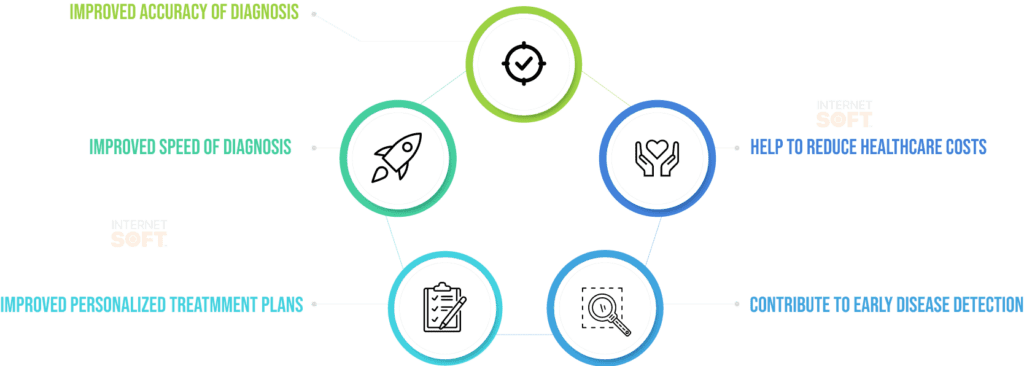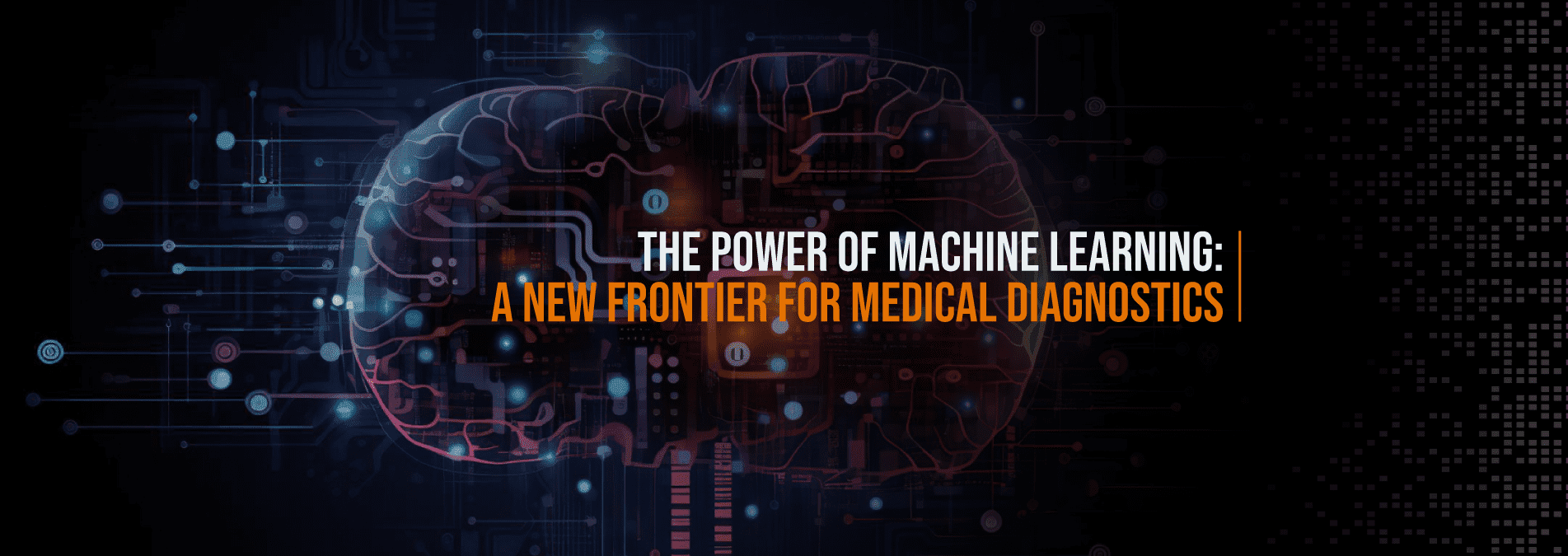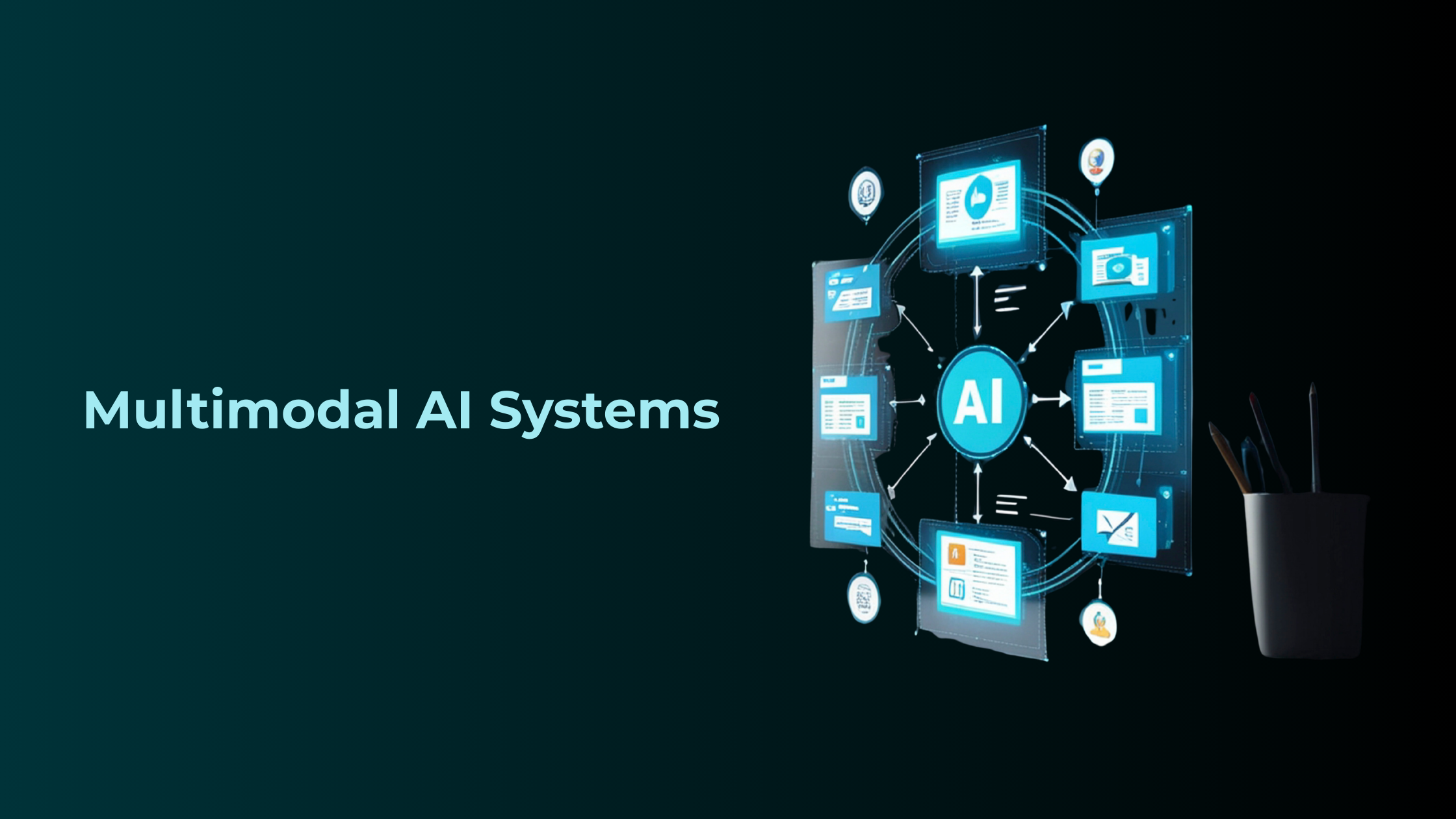Machine Learning Technologies are revolutionizing the field of Medical Diagnostics. As machine learning algorithms become more and more sophisticated, they offer incredible potential for helping doctors and medical researchers make more accurate diagnoses. By leveraging the power of machine learning, medical diagnostics are becoming more accurate, faster, and less expensive. This blog post will explore the many benefits of Machine Learning Technologies in Medical Diagnostics and discuss how they are being used to improve patient outcomes.
Overview of traditional medical diagnostics
Traditional medical diagnostics involve the use of various tests and procedures to identify diseases, conditions, and abnormalities in patients. These diagnostics rely on the expertise of medical professionals and their interpretation of the test results. However, this process can be time-consuming and prone to human error.
Before the advent of Machine Learning Technologies, medical diagnostics relied heavily on manual analysis and interpretation of patient data. This often meant that diagnoses were based on a limited set of symptoms and tests, leading to potential misdiagnoses or delays in treatment.
With the emergence of Machine Learning Technologies in medical diagnostics, there has been a significant shift in the approach to diagnosis. These technologies have the capability to analyze large volumes of patient data, including medical images, genetic information, and clinical records. By applying complex algorithms, Machine Learning Technologies can identify patterns and correlations that may not be readily apparent to human clinicians.
By automating the diagnostic process, Machine Learning Technologies can help streamline the diagnosis process and provide more accurate and timely results. Additionally, these technologies can integrate and analyze diverse data sources, providing a more comprehensive view of a patient’s condition.
In summary, traditional medical diagnostics relied on manual analysis and interpretation, which had limitations in terms of accuracy and efficiency. Machine Learning Technologies offer a promising alternative, allowing for more comprehensive and precise diagnosis, ultimately leading to improved patient outcomes.
The power of machine learning is reshaping medical diagnostics, marking a new frontier in healthcare. With the aid of advanced algorithms and data analysis, machine learning can recognize intricate patterns within medical data, facilitating early disease detection and accurate prognoses. Leveraging machine learning development services, healthcare professionals can access innovative tools that enhance diagnostic precision, ultimately leading to improved patient care and outcomes.
How machine learning is being used in medical diagnostics
Machine learning is being extensively used in various aspects of medical diagnostics to improve accuracy and efficiency. One area where machine learning has shown great promise is in medical imaging. Machine learning algorithms can analyze medical images such as X-rays, MRIs, and CT scans, and assist in the detection and diagnosis of diseases. These algorithms can identify patterns, anomalies, and abnormalities that may not be easily detectable by human clinicians. By leveraging machine learning in medical imaging, doctors can make more accurate diagnoses and develop appropriate treatment plans.
Another way machine learning is being used in medical diagnostics is in the analysis of patient data. Machine learning algorithms can process large amounts of patient data, including genetic information, electronic health records, and clinical notes, to identify patterns and correlations. This can help in the early detection of diseases, risk assessment, and personalized treatment planning. Machine learning can also assist in predicting patient outcomes and identifying optimal treatment options based on similar patient cases.
Additionally, machine learning is being used in diagnostic decision support systems. These systems use machine learning algorithms to analyze patient data and provide recommendations to healthcare providers. By assisting in the diagnosis and treatment decision-making process, machine learning technologies can help reduce errors and improve patient outcomes.
Overall, machine learning is revolutionizing medical diagnostics by providing advanced analysis and interpretation of patient data, improving accuracy, and aiding in personalized treatment planning.
Benefits of machine learning in medical diagnostics

Machine Learning Technologies offer numerous benefits in the field of Medical Diagnostics. These advanced technologies have the potential to revolutionize the way doctors and medical researchers diagnose and treat diseases.

One major benefit of machine learning in medical diagnostics is the improved accuracy of diagnoses. Machine learning algorithms can analyze vast amounts of patient data, including medical images, genetic information, and clinical records, to identify patterns and correlations that may not be easily recognizable by human clinicians. This enables doctors to make more precise diagnoses and develop appropriate treatment plans tailored to each patient’s unique condition.
Another benefit is the speed of diagnosis. Machine learning technologies can automate the diagnostic process, allowing for faster results. By rapidly analyzing and interpreting patient data, machine learning algorithms can provide timely information to healthcare providers, reducing the time it takes to reach a diagnosis. This speed can be crucial in emergency situations where quick decision-making is necessary.
Machine learning also has the potential to improve personalized treatment plans. By analyzing patient data and identifying patterns, machine learning algorithms can help healthcare providers develop individualized treatment plans that are tailored to each patient’s specific needs. This personalized approach can lead to more effective treatments and better patient outcomes.
Furthermore, machine learning can contribute to early disease detection. By analyzing patient data over time, machine learning algorithms can identify subtle changes and indicators of disease development. This early detection allows for early intervention and treatment, potentially saving lives and improving prognosis.
Lastly, machine learning technologies have the potential to bring about cost savings in medical diagnostics. By automating certain aspects of the diagnostic process, machine learning can reduce the need for manual labor and the associated costs. Additionally, early disease detection and personalized treatment plans can help reduce healthcare costs in the long run by preventing more severe complications and reducing the need for expensive treatments.

Improved accuracy and speed of diagnosis
Machine Learning Technologies have brought significant advancements to the field of Medical Diagnostics, particularly in terms of improving the accuracy and speed of diagnoses. Traditionally, medical diagnostics heavily relied on manual analysis and interpretation of patient data, which often led to potential misdiagnoses or delays in treatment. However, with the emergence of Machine Learning Technologies, diagnoses have become more precise and timely.
Machine learning algorithms can analyze vast amounts of patient data, including medical images, genetic information, and clinical records, to identify patterns and correlations that may not be easily recognizable by human clinicians. By leveraging this technology, doctors can make more accurate diagnoses and develop appropriate treatment plans tailored to each patient’s unique condition. This not only ensures that patients receive the most effective treatments, but it also helps avoid unnecessary procedures or medications.
In addition to improved accuracy, machine learning also significantly speeds up the diagnostic process. By automating the analysis and interpretation of patient data, machine learning algorithms can provide healthcare providers with rapid results. This is particularly crucial in emergency situations where quick decision-making is necessary to save lives.
Overall, the integration of Machine Learning Technologies in Medical Diagnostics has revolutionized the field by enhancing the accuracy and speed of diagnoses. By leveraging the power of machine learning algorithms, medical professionals can provide more precise and timely care, ultimately improving patient outcomes.
Let’s turn your ideas into reality! Get started now!
Hire Python Developer Unlock the potential of your projects with our expert Python developers.
Personalized treatment plans
Personalized treatment plans are a key advantage of incorporating Machine Learning Technologies in Medical Diagnostics. Traditionally, treatment plans have been developed based on generalized guidelines and a one-size-fits-all approach. However, with the advancements in machine learning, healthcare providers can now develop individualized treatment plans that are tailored to each patient’s specific needs and condition.
Machine learning algorithms can analyze vast amounts of patient data, including medical images, genetic information, and clinical records, to identify patterns and correlations that may not be readily apparent to human clinicians. By understanding these patterns, machine learning algorithms can help healthcare providers identify the most effective treatment options for each patient.
This personalized approach to treatment planning allows healthcare providers to consider factors such as a patient’s medical history, genetic makeup, lifestyle, and preferences. By taking these individual factors into account, healthcare providers can develop treatment plans that are more targeted, effective, and have a higher likelihood of success.
Furthermore, personalized treatment plans can help reduce the risk of adverse reactions or side effects by ensuring that patients receive medications or interventions that are compatible with their unique physiology. This individualized approach also empowers patients by involving them in the decision-making process and tailoring their treatment plans to their specific needs and goals.
Overall, the integration of machine learning in Medical Diagnostics enables the development of personalized treatment plans that enhance patient care and improve outcomes. By leveraging the power of machine learning algorithms, healthcare providers can ensure that each patient receives the most appropriate and effective treatments for their individual condition.
Early disease detection
Early disease detection is a critical aspect of medical diagnostics, and machine learning technologies have shown great potential in this area. By analyzing large volumes of patient data, including medical images, genetic information, and clinical records, machine learning algorithms can identify subtle changes and indicators of disease development that may not be easily recognizable by human clinicians. This early detection enables healthcare providers to intervene at an earlier stage, potentially preventing the progression of diseases and improving patient outcomes.
One of the key advantages of machine learning in early disease detection is its ability to identify patterns and correlations that may not be readily apparent to human clinicians. By analyzing a patient’s data over time, machine learning algorithms can recognize subtle changes in biomarkers or symptoms that may indicate the presence of a disease. This early detection allows for early intervention and treatment, which can significantly impact a patient’s prognosis.
Additionally, machine learning algorithms can help in risk assessment and predicting the likelihood of developing certain diseases. By analyzing a patient’s genetic information and other relevant data, machine learning can identify individuals who may be at higher risk for certain diseases, allowing for proactive monitoring and preventive measures.
Overall, the integration of machine learning in early disease detection has the potential to revolutionize medical diagnostics by enabling timely intervention and personalized treatment plans. By leveraging the power of machine learning algorithms, healthcare providers can identify diseases at their earliest stages and take proactive measures to improve patient outcomes.
Potential cost savings
In addition to the numerous benefits in terms of accuracy, speed, and personalized treatment, Machine Learning Technologies also have the potential to bring about significant cost savings in the field of medical diagnostics.
By automating certain aspects of the diagnostic process, machine learning can reduce the need for manual labor and the associated costs. Traditional diagnostics often require extensive human effort in analyzing and interpreting patient data, which can be time-consuming and costly. Machine learning algorithms, on the other hand, can rapidly process and analyze large volumes of patient data, reducing the need for manual analysis and saving both time and resources.
Furthermore, early disease detection facilitated by machine learning can help prevent more severe complications and costly treatments in the long run. By identifying diseases at their earliest stages, machine learning algorithms enable timely intervention and treatment, potentially saving lives and reducing the need for expensive medical procedures and therapies.
Moreover, the ability of machine learning to develop personalized treatment plans can also contribute to cost savings. By tailoring treatments to each patient’s specific needs and condition, healthcare providers can avoid unnecessary medications, interventions, and procedures, ultimately reducing healthcare costs.
Overall, the integration of Machine Learning Technologies in medical diagnostics has the potential to not only improve patient outcomes but also lead to significant cost savings in the healthcare system. By streamlining the diagnostic process, facilitating early disease detection, and enabling personalized treatment plans, machine learning technologies have the potential to make healthcare more efficient and cost-effective.
Challenges and limitations of using machine learning in medical diagnostics
While Machine Learning Technologies have brought significant advancements to the field of Medical Diagnostics, there are also several challenges and limitations that need to be considered. One major challenge is the reliance on high-quality and properly labeled data. Machine learning algorithms require large amounts of data to learn from and make accurate predictions. However, obtaining and curating high-quality medical data can be a complex and time-consuming process. Furthermore, medical data can often be incomplete or inconsistent, making it challenging for machine learning algorithms to learn and generalize effectively.
Another challenge is the interpretability of machine learning algorithms. While these algorithms can provide accurate predictions, understanding the underlying reasons behind those predictions can be difficult. This lack of interpretability can make it challenging for medical professionals to trust and rely on the outputs of machine learning systems.
Additionally, the ethical and legal implications of using machine learning in medical diagnostics are still being explored. Privacy concerns, data security, and the potential for bias in algorithmic decision-making are important considerations that need to be addressed to ensure patient safety and protect patient rights.
Moreover, the integration of machine learning technologies into existing healthcare systems and workflows can pose logistical challenges. Implementing and integrating new technologies can require significant changes in infrastructure, processes, and training for medical professionals.
Overall, while machine learning offers great potential in improving medical diagnostics, there are challenges and limitations that need to be carefully addressed and managed to ensure its successful and ethical integration into healthcare practices.
Internet Soft Top Software Development Company by B2B Marketplace DesignRush.
Visit Internet Soft for the latest tech trends and insights around AI, ML, Blockchain, along with NeoBanking and timely updates from industry professionals!
Need assistance or have questions? Reach out us at sales@internetsoft.com.








